Turmeric
In the world of herbs and spices, few hold a place as revered and diverse as turmeric. Beyond its vibrant golden hue, turmeric boasts a history rich in both culinary and medicinal applications.1
Turmeric has been cherished for centuries not only for its distinctive flavor, but also for its remarkable health benefits. From traditional remedies to modern dietary supplements, this humble root has captured the attention of wellness enthusiasts and researchers alike.
But what is turmeric? And is it the same thing as curcumin? What turmeric benefits are scientifically proven? Read on to discover everything you need to know about turmeric and how to include this exceptional spice into your wellness routine.
What is Turmeric?
Turmeric is a bright yellow spice derived from the root of the Curcuma longa plant, which is a member of the ginger family. This spice is primarily cultivated in regions of Southeast Asia, particularly India, and has been used for thousands of years.
Turmeric is the whole spice, while curcumin is a single compound within turmeric. When people refer to the health benefits of turmeric, they are often talking about the effects of curcumin. It is one of the most well-studied and bioactive components of turmeric and is responsible for many of its potential health benefits.
Whether you want to spice up your meals, alleviate health-related concerns, or explore natural remedies, consider adding a little turmeric to your life.
Benefits of Turmeric
Turmeric is a powerhouse spice that supports various health benefits. Here are a few ways it can positively affect your body and mind:
Relief from Digestive Discomfort
Turmeric may support digestion by stimulating bile production and reducing symptoms of indigestion.2 It is also used traditionally to soothe digestive discomfort.
Rich in Antioxidants
Turmeric is rich in antioxidants, which can neutralize harmful free radicals and protect cells from oxidative damage.3
Heart Health Support
Curcumin may help improve heart health by contributing to endothelial function, reducing oxidative stress and supporting healthy cholesterol levels.4
Supports Cognitive Health
Emerging research indicates that curcumin may have neuroprotective properties and potential benefits for cognitive function.5
These are only a few of the potential benefits of turmeric on your health. Now, explore emerging research that continues to explore the effects of turmeric in scientific study.
The Science-Backed Benefits of Turmeric
Beyond traditional wisdom and anecdotal praise, what does the scientific research reveal about turmeric? Examine research studies that separate fact from fiction.
Turmeric May Alleviate Joint-Related Issues
According to a recent study, curcumin and Curcuma longa extract may help alleviate pain and soothe health-related concerns from arthritis.6 This development is especially interesting for patients who do not tolerate traditional forms of arthritis medication like steroids. Although more research is needed, curcumin shows promising results in helping to alleviate joint-related issues.
Curcumin May Support Eye Health
Another interesting research project suggests that curcumin may support the treatment of various eye diseases.7 A thorough review of various studies shows that curcumin’s powerful properties can be used as a therapeutic agent for conditions such as glaucoma, dry eye diseases, conjunctivitis and more.
Curcumin May Support Brain Health
And finally, curcumin may have a role in helping to treat and prevent age-related cognitive decline.8 Although more research is needed on this topic, curcumin shows promising characteristics that can treat or counter oxidative damage and other health-related concerns. Plus, curcumin can help clear amyloid plaques, which is a buildup of protein tangles present in Alzheimer’s disease.
The Bulletproof Approach to Turmeric
At Bulletproof, we look towards traditional wisdom but adhere to science-backed evidence to develop our products. We recognize that age-old practices hold immense value and are a great starting point for exploring potential wellness practices. However, it’s essential to recognize that traditional wisdom is not the same as scientific proof.
As much as turmeric promises a wealth of benefits, we look to science to validate the efficacy and safety of wellness claims. Ultimately, the goal is to embrace a holistic approach to health and well-being that honors tradition but is informed by scientific knowledge. By doing so, we can help you navigate the complex landscape of wellness with confidence and make choices that are appropriate for your health journey.
Turmeric Supplements
Even with a balanced diet, it can be difficult to get all the nutrients you need to optimize your wellness stack. Incorporating supplements in your routine can be a great way to target specific health concerns with science-backed doses. Because curcumin does not have an especially high bioavailability when eaten9, it is a good candidate as a supplement to get a higher concentration.
Incorporating turmeric into your diet can be beneficial, but supplementation can ensure a consistent dose of curcumin, which may be particularly useful for supporting specific wellness objectives. The key is to strike a balance between supplements, a wholesome diet and a healthy lifestyle. Consult with a healthcare professional to determine the most appropriate supplements for your individual needs and health goals.
Some of our favorite ways to easily incorporate more turmeric in your wellness stack, include:
Turmeric Gummies
They taste like candy but offer soothing benefits for your health. Enjoy this potent science-backed blend of ginger and turmeric for daily support from your body’s response to diet, stress and daily exercise.
Turmeric Curcumin Complex
Boost your daily intake of curcumin with this whole turmeric complex that is ten times more bioavailable than the turmeric powder in your spice drawer. This supplement also includes Boswellia for better mobility, ginger for joint health and Brain Octane Oil for improved absorption.
Polyphenomenal
This anti-aging supplement blends nine polyphenols, antioxidants from sources like turmeric, green tea and pomegranate. It’s not easy to get as high a concentration of polyphenols from your regular diet, so this supplement is a great way to get an optimal daily dose.
Our Supplement Testing Standards
At Bulletproof, we only use science-backed evidence to select ingredients and test our products. We hold ourselves to the highest standards to bring you top-quality supplements you can count on. Our rigorous supplement testing standards go through four steps.
First, we test ingredient concentration, to make sure there’s no dilution. Then, we look at the purity of ingredients to ensure no harmful contaminants are present. After that, we examine the strength of the product to make sure there’s the correct amount of active ingredients. And finally, we test the composition of the product to make sure it meets all label specifications. These tests are important to ensure our supplements are effective, safe and accurately labeled.
We work closely with accredited third-party labs for unbiased results. This way, we can leverage the expertise of various laboratories to run appropriate testing methods. Plus, to offer consistent quality, we analyze each production lot to make sure all meet the highest standards for efficacy and safety.
Turmeric Recipes
Explore the many ways that you can incorporate turmeric into your meal planning. From sweet to savory, you’ll find turmeric-rich recipes for every time of day.
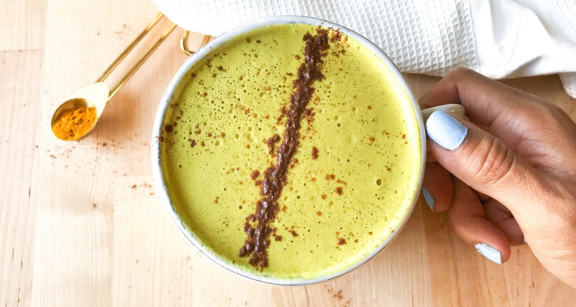
Adaptogenic Turmeric Latte

Turmeric Pulled-Pork Curry and Cilantro Cauliflower Rice

Paleo Spiced Turmeric Pancakes
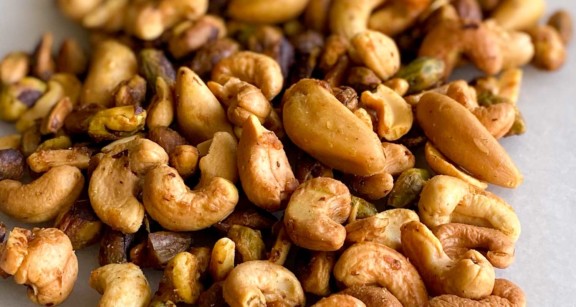
Maple-Roasted Nut Mix with Turmeric and Black Pepper
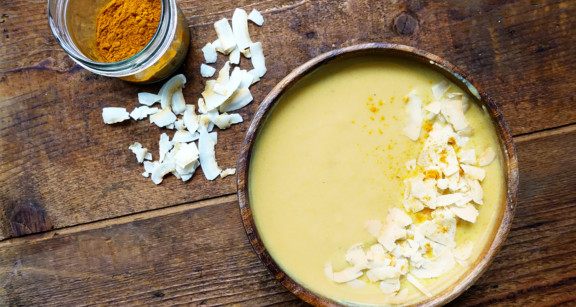
Turmeric-Coconut Smoothie Bowl

Keto Cobb Salad With Golden Vinaigrette
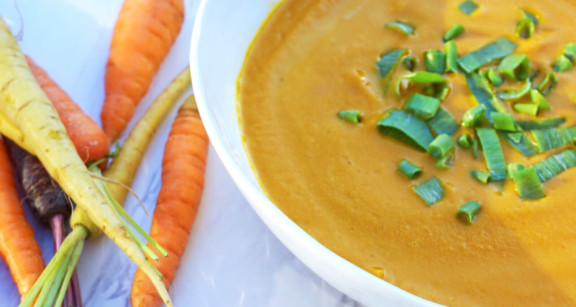
Cleansing Ginger Carrot Soup
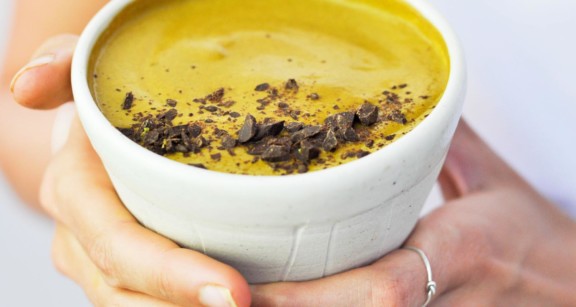
Chocolate Golden Milk Latte

Paleo Cauliflower Fritters
Learn More About Turmeric
Turmeric Articles
It’s Always Golden Hour With These 7 Turmeric Benefits
What Are Adaptogens? 11 Natural Herbs to Keep You Balanced
How to Strengthen Your Immune System Naturally
16 Ideas for Delicious Bulletproof Coffee Hacks
The 6 Best Joint Supplements: What to Take and Why You Need Them
6 Inflammatory Foods to Avoid and What to Eat Instead
Everything You Need to Know About Autophagy
How to Stock a Healthy Pantry with Long-Lasting Staples, Plus Recipes
FAQs
Getting enough curcumin from turmeric alone can be challenging because the concentration of curcumin in turmeric is relatively low. Typically, turmeric contains about 2-5% curcumin by weight. To put this into perspective, this means that for every 100 grams of turmeric, you would get approximately 2-5 grams of curcumin. To experience therapeutic benefits, you may want to consider higher-dose curcumin supplements.
While generally considered safe, high doses of curcumin may cause digestive discomfort in some people. It may also interact with certain medications, so consult with a healthcare professional if you have any concerns. However, the likelihood of experiencing side effects is typically low when turmeric is consumed in the amounts commonly found in food. Most side effects are associated with high-dose curcumin supplements.
Try adding turmeric to curries, soups, smoothies and rice dishes. Turmeric tea and turmeric lattes (golden milk) are also popular ways to consume it. Feel free to experiment with our favorite turmeric recipes to see which ones you like best. And to increase the bioavailability of curcumin, make sure to add black pepper to your dish or drink.
Turmeric supplements typically contain the whole spice, while curcumin supplements provide a concentrated dose of the bioactive compound. Curcumin supplements are often used for therapeutic purposes.
Dosages can vary based on your needs and specific health conditions. And remember, while curcumin has shown promise in various health conditions, it is not a replacement for medical treatment. It should be viewed as a complementary approach to support overall well-being. Always seek professional guidance when using curcumin supplements, especially if you have underlying health issues or are taking medications, as it may interact with certain drugs. Your healthcare provider can help you develop a safe and effective curcumin supplementation plan tailored to your specific needs.
Look for supplements with a high concentration of curcuminoids (95% or higher) and consider those with third-party testing for purity and quality. Avoid supplements that contain unnecessary fillers, additives, or artificial ingredients.